Find Help
More Items From Ergsy search
-
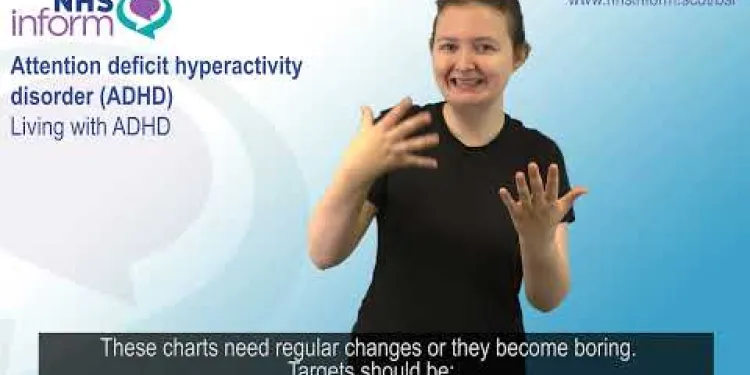
Attention deficit hyperactivity disorder (ADHD) - Living with ADHD
Relevance: 100%
-
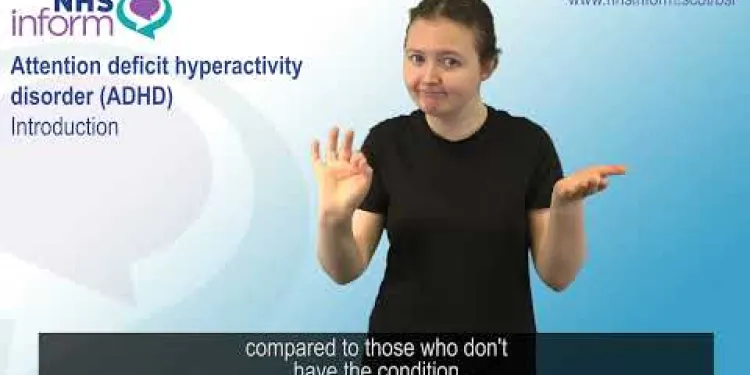
Attention deficit hyperactivity disorder (ADHD) - Introduction
Relevance: 94%
-
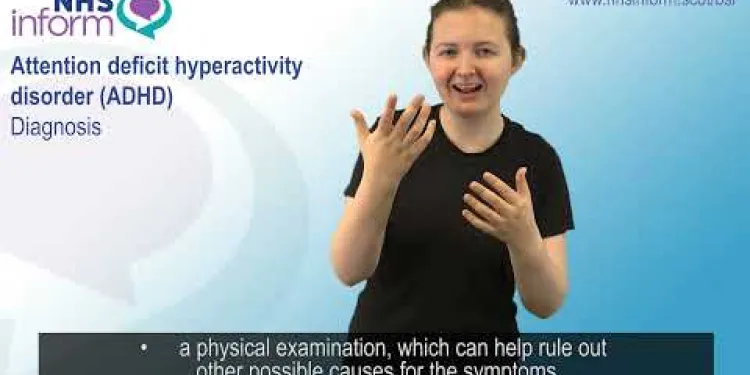
Attention deficit hyperactivity disorder (ADHD) - Diagnosis
Relevance: 93%
-
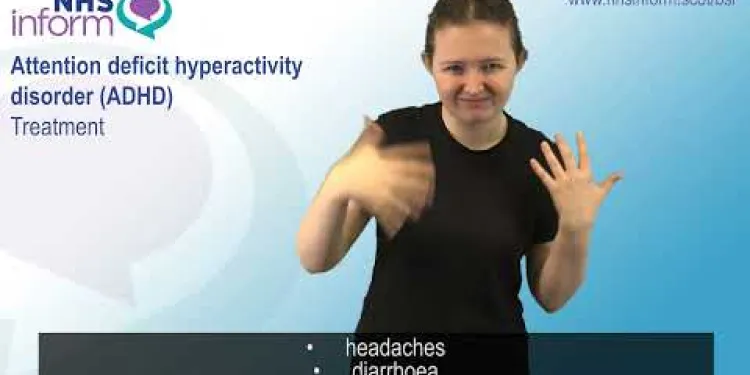
Attention deficit hyperactivity disorder (ADHD) - Treatment
Relevance: 88%
-

Are there different types of ADHD?
Relevance: 48%
-

What is ADHD?
Relevance: 47%
-

What causes ADHD?
Relevance: 44%
-

How is ADHD diagnosed?
Relevance: 44%
-
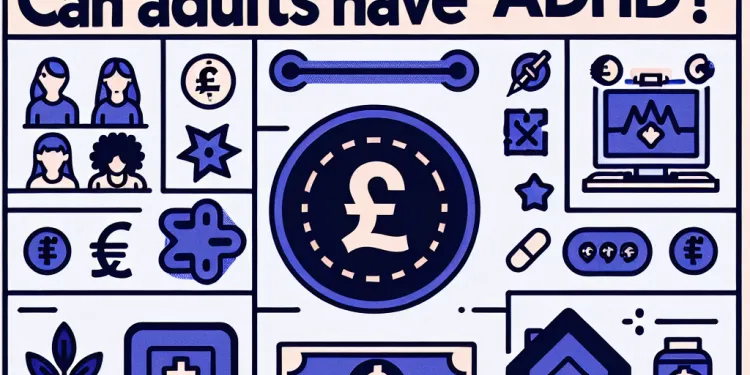
Can adults have ADHD?
Relevance: 44%
-

Can ADHD be inherited?
Relevance: 43%
-
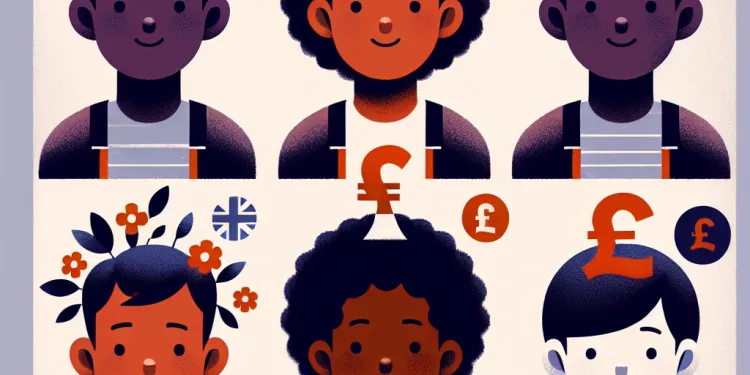
Is ADHD more common in boys or girls?
Relevance: 43%
-
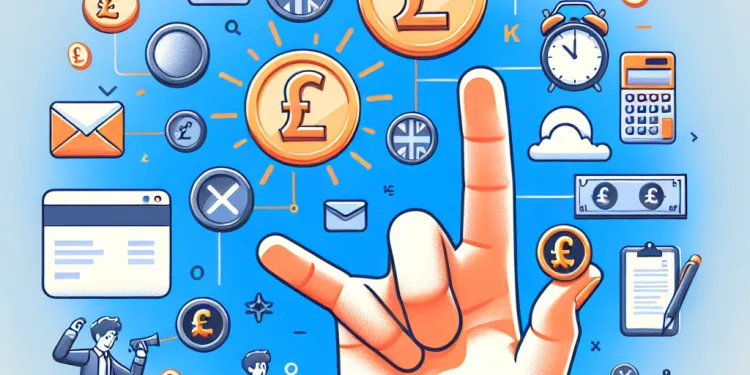
What are the main symptoms of ADHD?
Relevance: 43%
-
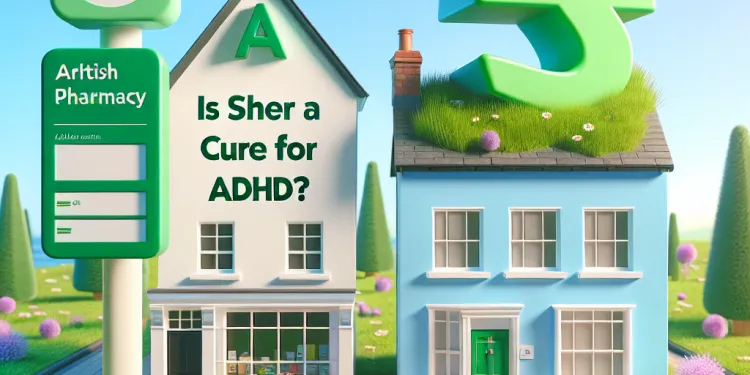
Is there a cure for ADHD?
Relevance: 41%
-

Are there any risks associated with untreated ADHD?
Relevance: 40%
-
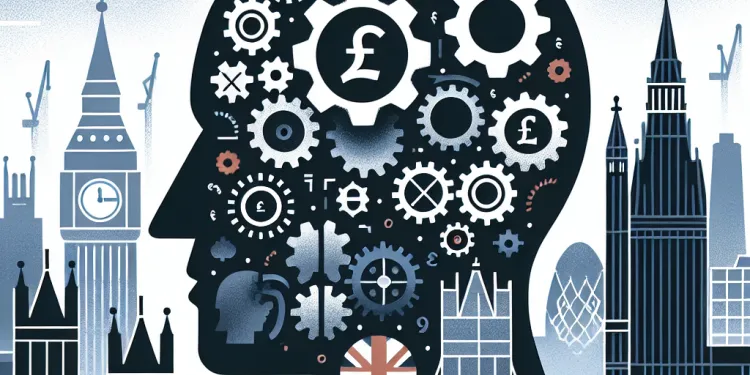
How does ADHD affect executive function?
Relevance: 40%
-
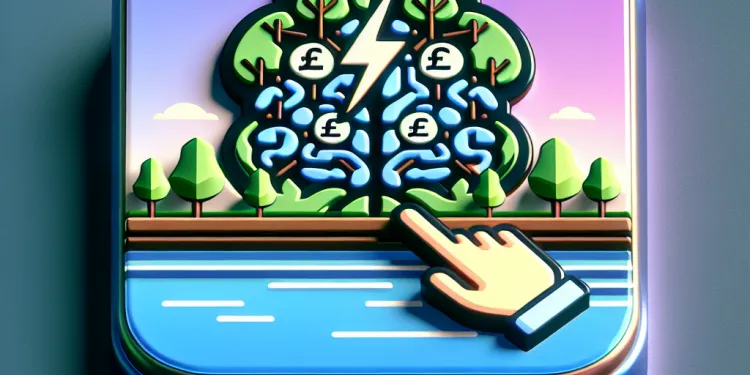
What role does the environment play in ADHD?
Relevance: 40%
-
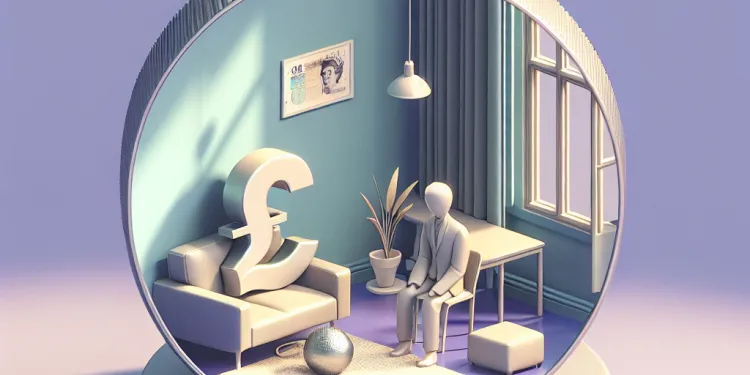
Can therapy help individuals with ADHD?
Relevance: 37%
-
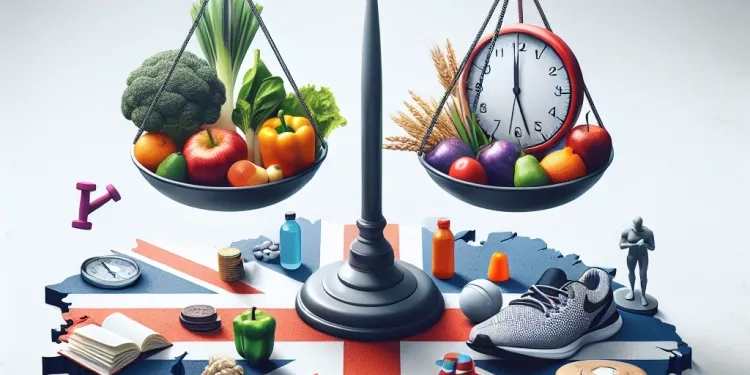
Can lifestyle changes help manage ADHD?
Relevance: 37%
-

What are common treatments for ADHD?
Relevance: 37%
-

How can teachers support students with ADHD?
Relevance: 36%
-
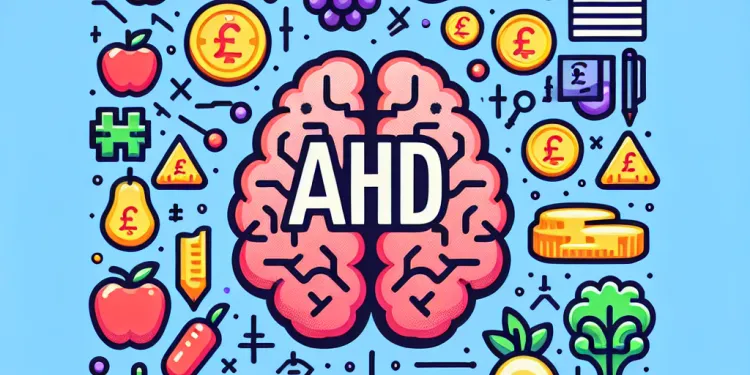
Can diet affect ADHD symptoms?
Relevance: 35%
-

How can I get tested for ADHD?
Relevance: 34%
-

What is ADHD?
Relevance: 34%
-

What are some common types of SEND?
Relevance: 31%
-
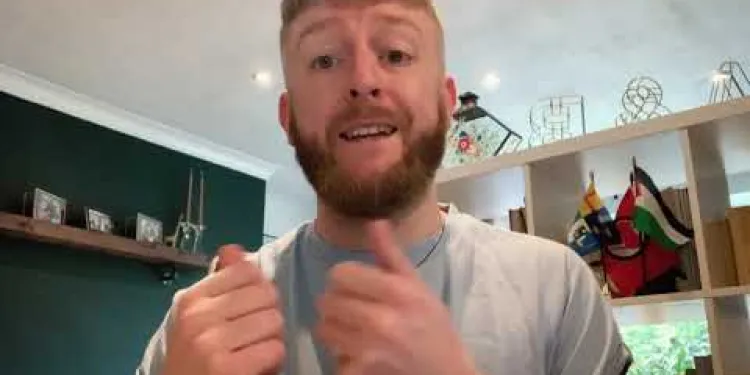
Living with Bipolar Disorder
Relevance: 31%
-
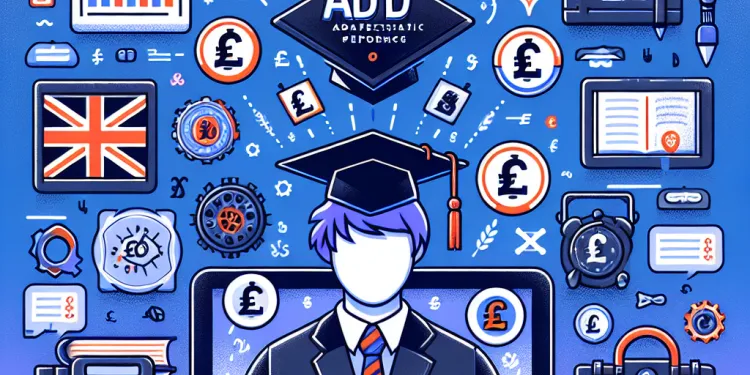
Can ADHD affect academic performance?
Relevance: 29%
-
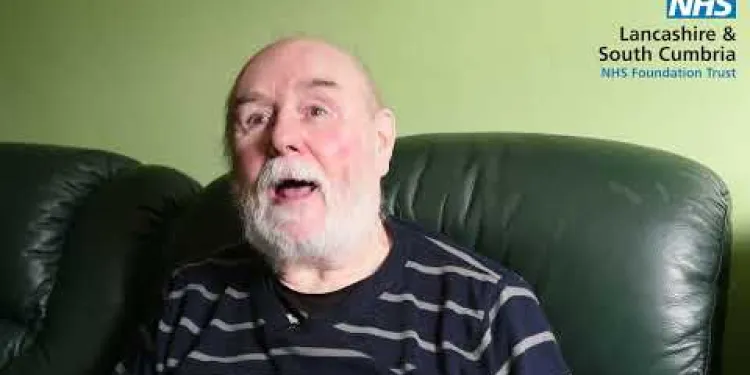
Steve Green tells his story on living with a hoarding disorder
Relevance: 24%
-
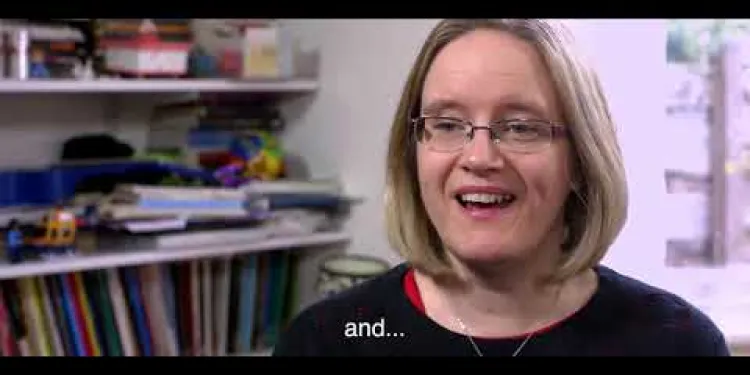
Living with Foetal Alcohol Spectrum Disorder (FASD), a mum’s journey (full version)
Relevance: 23%
-

Has paracetamol been linked to other developmental issues besides autism?
Relevance: 20%
-
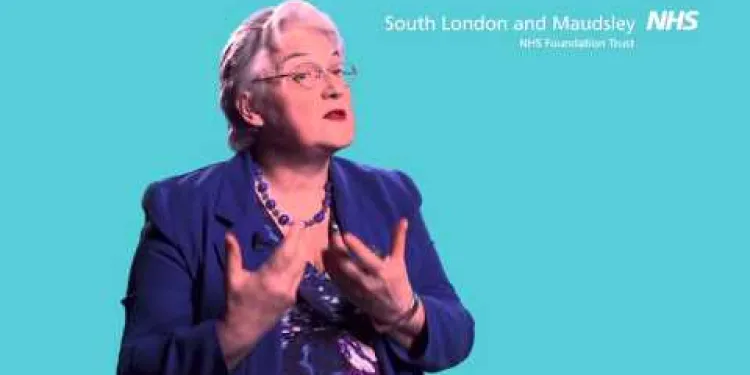
Eating disorders: treatment
Relevance: 19%
-
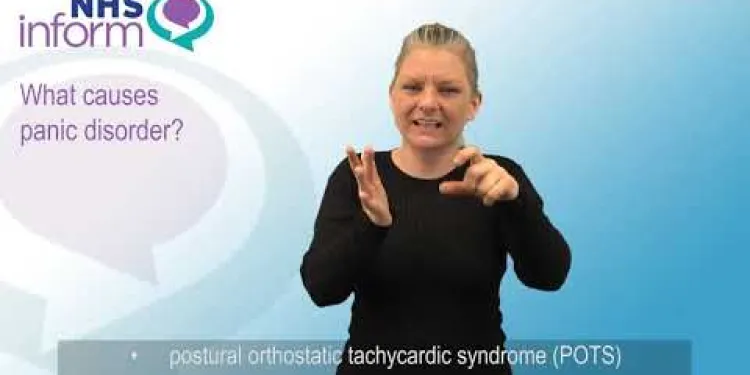
BSL - Introduction to panic disorder
Relevance: 19%
-
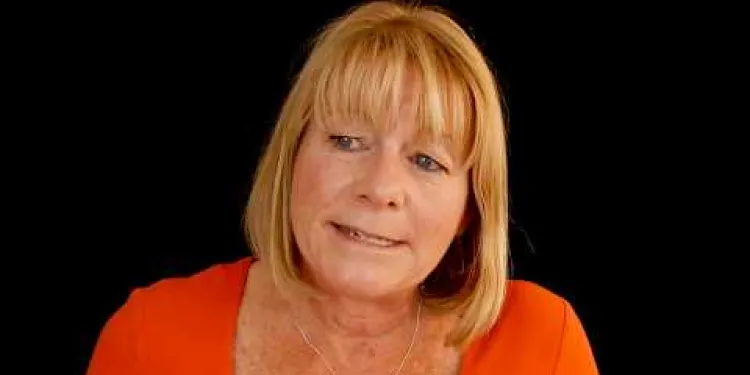
The treatment approach for an eating disorder
Relevance: 19%
-
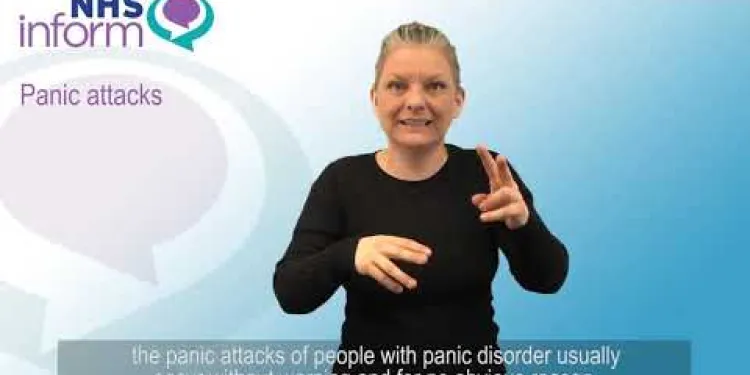
BSL - Diagnosis of panic disorder
Relevance: 19%
-
Is it possible to recover from an eating disorder?
Relevance: 19%
-
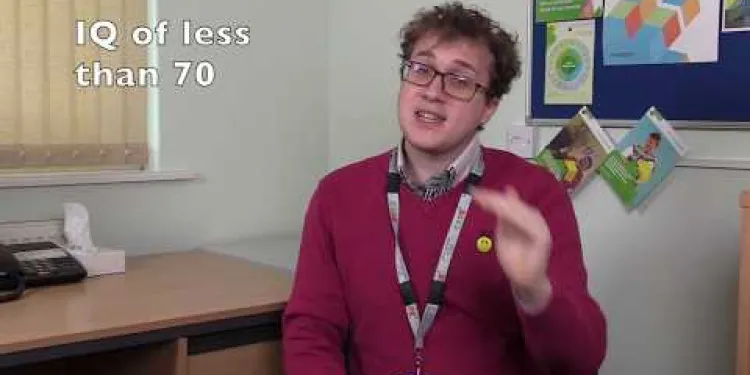
What is a learning disability?
Relevance: 19%
-
Can eating disorders be treated?
Relevance: 18%
-
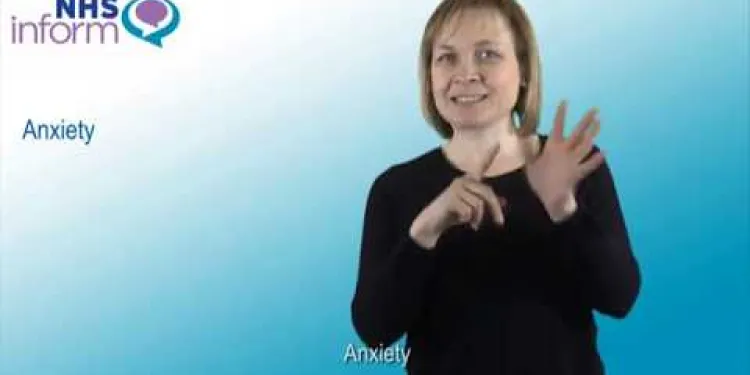
Generalised anxiety disorder (GAD)
Relevance: 18%
-
What is an Eating Disorder?
Relevance: 18%
-
What is an eating disorder?
Relevance: 18%
-
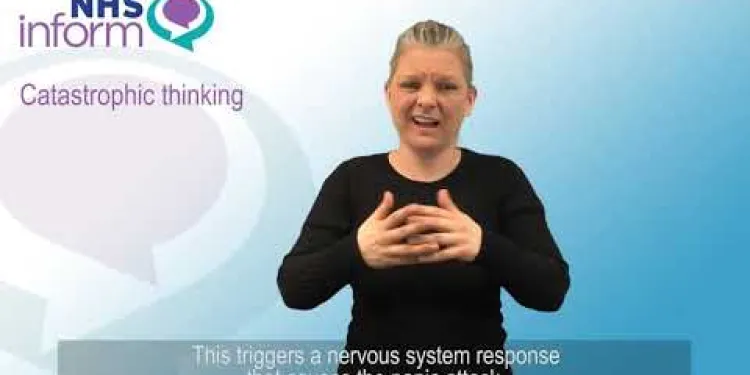
BSL - Causes of panic disorder
Relevance: 18%
Attention Deficit Hyperactivity Disorder (ADHD): Living with ADHD
Understanding ADHD
Attention Deficit Hyperactivity Disorder (ADHD) is a neurodevelopmental disorder that affects both children and adults. Characterised by symptoms such as inattention, hyperactivity, and impulsiveness, ADHD can significantly impact daily life. In the United Kingdom, it's estimated that up to 5% of children and 2.5% of adults are affected by ADHD. Early diagnosis and management are crucial for improving quality of life.Symptoms of ADHD
ADHD symptoms can be categorised into inattentiveness and hyperactivity/impulsiveness. Common symptoms include difficulty concentrating, forgetfulness, excessive talking, fidgeting, and difficulties in following instructions. These symptoms can vary in intensity and may lead to challenges in academic, professional, and social settings.Diagnosing ADHD in the UK
Diagnosis of ADHD typically involves a thorough assessment by a specialist, such as a psychiatrist or paediatrician. This includes a detailed history, behavioural observations, and interviews with the patient, family, and teachers. Diagnostic criteria from the DSM-5 or ICD-10 are commonly used. Early detection is vital for managing symptoms and mitigating potential negative impacts on education and social development.Managing ADHD
Living with ADHD requires a combination of treatments and strategies. Pharmacological treatments, such as stimulant medications (e.g., methylphenidate) and non-stimulants (e.g., atomoxetine), are frequently prescribed to help manage symptoms. In addition to medication, behavioural therapy, cognitive-behavioural therapy (CBT), and psychoeducation are essential components of a comprehensive treatment plan.Support Systems and Resources
Support systems play a crucial role in managing ADHD. Local organisations like the ADHD Foundation and ADDISS offer resources, support groups, and advocacy for those living with ADHD in the UK. Additionally, educational adjustments and workplace accommodations can significantly improve productivity and reduce stress for individuals with ADHD.Coping Strategies for Daily Life
Effective coping strategies can make a significant difference. Techniques such as creating structured routines, using organisational tools like planners and apps, breaking tasks into manageable steps, and practising mindfulness can enhance daily functioning. Regular physical exercise and a healthy diet are also beneficial in managing symptoms.Conclusion
Living with ADHD presents unique challenges, but with proper diagnosis, treatment, and support, individuals can lead successful and fulfilling lives. Awareness and understanding are key to reducing stigma and providing the necessary support structures for those affected by ADHD in the United Kingdom.Attention Deficit Hyperactivity Disorder (ADHD): Living with ADHD
Understanding ADHD
ADHD is a condition that affects how the brain works. It can affect both kids and adults. People with ADHD might find it hard to pay attention, sit still, or think before they act. In the UK, about 5 out of 100 kids and 2.5 out of 100 adults have ADHD. Finding out early if someone has ADHD is important so they can get help.Symptoms of ADHD
Symptoms of ADHD are split into two main types: not paying attention and being very active or impulsive. Some common signs are: not being able to focus, being forgetful, talking too much, fidgeting, and not following instructions well. These can make school, work, and being with friends difficult.Diagnosing ADHD in the UK
To find out if someone has ADHD, they usually see a specialist like a doctor for children or a mental health professional. The doctor talks to the person, their family, and sometimes their teachers. They use guides called DSM-5 or ICD-10. Knowing early helps to handle symptoms better and do well in school and social life.Managing ADHD
Handling ADHD often includes different types of help. Medicines, like stimulants and non-stimulants, can help with symptoms. Talking therapies, like cognitive-behavioural therapy (CBT), and learning more about the condition are also important parts of getting better.Support Systems and Resources
Getting help from others is very important for those with ADHD. Groups like the ADHD Foundation and ADDISS in the UK offer help, advice, and places to meet others with ADHD. Schools and workplaces can also offer changes to help people do their best.Coping Strategies for Daily Life
There are ways to make things easier day by day. Setting up a routine, using tools like notebooks or phone apps, breaking big tasks into smaller ones, and using mindfulness can help a lot. Exercising and eating well are also good for managing ADHD.Conclusion
Living with ADHD can be hard, but with the right diagnosis, treatment, and support, people can have successful and happy lives. Understanding what ADHD is can help reduce misunderstandings and give people the support they need.Frequently Asked Questions
What is ADHD?
Attention Deficit Hyperactivity Disorder (ADHD) is a neurodevelopmental disorder characterised by symptoms of inattention, impulsivity, and hyperactivity.
How is ADHD diagnosed?
ADHD is usually diagnosed through a comprehensive evaluation that includes medical history, behavioural assessments, and standardised ADHD rating scales.
What are common symptoms of ADHD in adults?
Common symptoms in adults include difficulty focusing, disorganization, poor time management, impulsiveness, and restlessness.
Can ADHD be treated?
Yes, ADHD can be managed with a combination of medication, behavioural therapy, and lifestyle changes.
Are there specific medications for ADHD?
Yes, medications such as stimulants (e.g., methylphenidate) and non-stimulants (e.g., atomoxetine) are commonly prescribed for managing ADHD symptoms.
What lifestyle changes can help manage ADHD symptoms?
Maintaining a regular routine, exercising regularly, eating a balanced diet, and practicing mindfulness can help manage symptoms.
How does ADHD affect academic performance?
ADHD can make it challenging to concentrate, stay on task, and follow through with assignments, potentially impacting academic performance.
Are there support groups for individuals with ADHD in the UK?
Yes, organisations like ADHD UK and the National Attention Deficit Disorder Information and Support Service (ADDISS) offer support and resources.
Can children with ADHD outgrow the condition?
While some children may see a reduction in symptoms as they age, ADHD often continues into adulthood.
How can parents support a child with ADHD?
Parents can support their child by establishing a structured routine, using positive reinforcement, and working with their child’s school for appropriate accommodations.
What accommodations might be available for students with ADHD?
Accommodations may include extra time on tests, a quiet room for exams, and assistance with note-taking and organisation.
Can diet influence ADHD symptoms?
While diet alone isn't a treatment for ADHD, some studies suggest that a balanced diet and avoiding certain additives may help manage symptoms.
Is ADHD genetic?
ADHD tends to run in families, suggesting a genetic component, though environmental factors also play a role.
Can adults be diagnosed with ADHD?
Yes, adults can receive an ADHD diagnosis, and many are diagnosed later in life after struggling with symptoms for years.
How does ADHD impact relationships?
ADHD can strain relationships due to impulsivity, disorganisation, and difficulty listening, but understanding and strategies can improve interactions.
What is ADHD?
ADHD stands for Attention Deficit Hyperactivity Disorder. It is a way the brain works differently. People with ADHD may find it hard to sit still or pay attention. They might talk a lot and interrupt others. ADHD can make learning and working harder.
If you or someone you know has ADHD, remember it is okay. There are ways to help. Talking to a doctor or a teacher can be a good start. They can give advice and support.
There are also tools that can help, like using a timer to stay on track, or taking breaks when needed. Listening to music can sometimes help focus, too.
ADHD is a condition that affects how the brain works. It makes it hard for people to pay attention, sit still, and control their actions.
How do doctors know if someone has ADHD?
Doctors have a special way to check if someone has ADHD.
They might ask questions and listen to what the person says. Families and teachers can help by telling the doctor what they see.
A doctor might use some quizzes or forms to help them understand better.
It's important to talk to a doctor who knows about ADHD. They can help find out for sure.
Doctors find out if someone has ADHD by doing a big check-up. This check-up has three parts:
First, they ask about the person's health and past illnesses.
Next, they look at how the person acts in different situations.
Finally, they use special tests to see if the person might have ADHD.
What are common signs of ADHD in grown-ups?
Adults with ADHD might:
- Find it hard to focus
- Forget things a lot
- Have trouble finishing tasks
- Be restless or fidgety
- Talk a lot or interrupt others
If you think you might have ADHD, talking to a doctor can help.
Using tools like reminders on your phone or writing lists can be useful.
Here are some common signs for adults:
- Having trouble paying attention
- Being messy and not organized
- Not being good at managing time
- Acting without thinking
- Feeling like you need to move all the time
Tips to help:
- Use lists to keep track of tasks
- Set reminders for important things
- Take breaks to stay focused
- Practice breathing exercises to calm down
Can ADHD be helped?
People with ADHD can get help to feel better and do better in school or work. There are things that can help:
- Medicine: A doctor can give medicine to help you focus and feel calm.
- Talking to Someone: Talking with a therapist can help you understand your feelings.
- Routines: Having a regular schedule can make things easier. Try to do things at the same time every day.
- Tools: Using reminders or timers can help you stay on track with tasks.
If you need help, talk to an adult you trust, like a teacher or a parent.
Yes, people can manage ADHD in different ways. They can use medicine, talk to someone to get help changing their behavior, and make changes to how they live their life.
Some tools that can help include setting reminders, using a calendar, and breaking tasks into smaller steps.
Are there medicines for ADHD?
Yes, there are special medicines for ADHD. They can help. Always talk to a doctor first.
Here are some things that can help too:
- Use a timer to keep track of time.
- Write a to-do list.
Yes, there are medicines that can help with ADHD. Some medicines make you feel more awake, like methylphenidate. Others do not make you feel more awake, like atomoxetine. Doctors often give these medicines to help with ADHD.
How can changes in daily life help with ADHD?
There are some things you can do every day to help with ADHD.
- Exercise: Moving your body can help you focus better. Try playing a sport, dancing, or just walking.
- Healthy Eating: Eating good food helps your body and brain work well. Try to eat fruits, vegetables, and proteins.
- Sleep: Getting enough sleep helps you feel good and pay attention. Try to go to bed at the same time every night.
- Planning: Using a checklist or calendar can help you remember things you need to do.
- Breaks: Taking short breaks when working or studying can help you stay focused.
Tools like a timer, a planner, or reminder apps on your phone can also help you. These tools can remind you what to do next and keep you on track.
Sticking to a daily routine, doing exercise often, eating healthy foods, and doing calming activities like taking deep breaths can help you feel better.
How does ADHD affect school work?
ADHD can make it hard to focus and sit still in class.
Here are ways it can affect school work:
- Finding it hard to pay attention to the teacher.
- Getting bored and not finishing tasks.
- Fidgeting and moving around a lot.
- Forgetting to do homework.
Support can help:
- Use timers to stay on track.
- Break tasks into smaller steps.
- Take short breaks during study time.
- Talk to teachers for extra help.
People with ADHD might find it hard to focus, finish their work, and stick with tasks. This can make schoolwork difficult.
Here are some helpful tips:
- Make a list of things to do. Check them off when done.
- Ask for help from a teacher or parent if needed.
- Take short breaks between tasks.
- Use reminders to keep track of time.
Can people with ADHD in the UK join support groups?
Yes, people with ADHD in the UK can join support groups.
These groups help people with ADHD feel better.
They talk, share tips, and support each other.
Look online or ask your doctor to find a group near you.
Yes, there are groups that can help people with ADHD. Two of these groups are called ADHD UK and ADDISS. They have information and support for people who need it.
Will kids with ADHD get better as they grow up?
Some kids with ADHD may see their symptoms get better as they grow up. Others might still have ADHD when they become adults.
Here are some things that might help:
- Talk to a doctor: They can give advice and help.
- Use reminders: Sticky notes or alarms can help keep track of tasks.
- Break tasks into small steps: This makes it easier to do things one step at a time.
- Take breaks: Short breaks can help if you have trouble focusing.
Remember, everyone is different. It is important to get support and find out what works best for you.
Some kids might have fewer ADHD signs as they get older, but many still have ADHD when they grow up.
How can parents help a child with ADHD?
Parents can help their child with ADHD in easy ways. Here are some tips:
- Make a Daily Schedule: Have a plan for each day. It helps the child know what to expect.
- Create Simple Rules: Make clear and easy rules to follow. It is important to be consistent.
- Positive Feedback: Praise the child when they do something good. This can encourage them to do it again.
- Get Active: Play and exercise can help the child use their energy in a good way.
- Break Tasks into Steps: Make big tasks smaller. This makes it easier for the child to do them.
- Use Tools: Use charts or lists to remind the child what to do.
- Be Patient: Stay calm and patient. It can be tough sometimes, but your support matters!
Parents can help their child by making a daily schedule, giving praise and rewards for good work, and talking to their child's school to get extra help.
What help can students with ADHD get at school?
Sometimes people get extra help at school. This help can be more time to finish a test, taking a test in a quiet room, or getting help with writing notes and keeping things organized.
Can the food you eat change ADHD signs?
Can what you eat help with ADHD signs? ADHD can make you feel very active and want to move a lot. Some people think food can make these signs better or worse.
Here are some ideas:
- Eat fruits and vegetables. They are good for your body.
- Try to eat less sugar. Too much sugar can make you too active.
- Drink plenty of water. Water keeps your brain working well.
If you have trouble with ADHD, talk to a grown-up or a doctor. They can help you with food choices.
Eating healthy food can't fix ADHD, but it might help with some of the problems. Some experts say eating good food and staying away from certain food chemicals might help with ADHD.
Is ADHD passed down from parents?
ADHD can run in families. This means it can be passed from parents to children. If a parent has ADHD, their child might have it too.
To help with reading, use tools like a ruler to follow lines. You can also listen to audio books for better understanding.
ADHD can run in families. This means it might be in your genes. But, things around you can also cause it.
If you find reading hard, try using pictures or audio tools to help. You can also ask someone to read it with you.
Can grown-ups find out if they have ADHD?
Yes, grown-ups can find out if they have ADHD. Doctors can help by asking questions and doing tests.
Here are ways to get help:
- Talk to a doctor for advice.
- Write down things you find hard, like paying attention.
- Ask family or friends to support you.
Yes, adults can find out they have ADHD. Many adults find out later in life after having problems for a long time.
How does ADHD affect friendships and family?
ADHD can make friendships and family relationships harder. People with ADHD might find it tough to focus, listen, or remember things. This can lead to misunderstandings or fights.
It's important to talk and listen carefully. Make sure everyone understands each other. Sometimes, writing things down can help.
Using a planner or reminders can also be useful. This helps with remembering plans or things to do.
Having ADHD can make friendships and family relationships hard. This happens because people with ADHD can sometimes act quickly without thinking, can be messy, and can find it hard to listen. But if you learn more about ADHD and use some helpful tips, things can get better.
Useful Links
This website offers general information and is not a substitute for professional advice.
Always seek guidance from qualified professionals.
If you have any medical concerns or need urgent help, contact a healthcare professional or emergency services immediately.
- Ergsy carfully checks the information in the videos we provide here.
- Videos shown by Youtube after a video has completed, have NOT been reviewed by ERGSY.
- To view, click the arrow in centre of video.
- Most of the videos you find here will have subtitles and/or closed captions available.
- You may need to turn these on, and choose your preferred language.
- Go to the video you'd like to watch.
- If closed captions (CC) are available, settings will be visible on the bottom right of the video player.
- To turn on Captions, click settings .
- To turn off Captions, click settings again.
More Items From Ergsy search
-

Attention deficit hyperactivity disorder (ADHD) - Living with ADHD
Relevance: 100%
-

Attention deficit hyperactivity disorder (ADHD) - Introduction
Relevance: 94%
-

Attention deficit hyperactivity disorder (ADHD) - Diagnosis
Relevance: 93%
-

Attention deficit hyperactivity disorder (ADHD) - Treatment
Relevance: 88%
-

Are there different types of ADHD?
Relevance: 48%
-

What is ADHD?
Relevance: 47%
-

What causes ADHD?
Relevance: 44%
-

How is ADHD diagnosed?
Relevance: 44%
-

Can adults have ADHD?
Relevance: 44%
-

Can ADHD be inherited?
Relevance: 43%
-

Is ADHD more common in boys or girls?
Relevance: 43%
-

What are the main symptoms of ADHD?
Relevance: 43%
-

Is there a cure for ADHD?
Relevance: 41%
-

Are there any risks associated with untreated ADHD?
Relevance: 40%
-

How does ADHD affect executive function?
Relevance: 40%
-

What role does the environment play in ADHD?
Relevance: 40%
-

Can therapy help individuals with ADHD?
Relevance: 37%
-

Can lifestyle changes help manage ADHD?
Relevance: 37%
-

What are common treatments for ADHD?
Relevance: 37%
-

How can teachers support students with ADHD?
Relevance: 36%
-

Can diet affect ADHD symptoms?
Relevance: 35%
-

How can I get tested for ADHD?
Relevance: 34%
-

What is ADHD?
Relevance: 34%
-

What are some common types of SEND?
Relevance: 31%
-

Living with Bipolar Disorder
Relevance: 31%
-

Can ADHD affect academic performance?
Relevance: 29%
-

Steve Green tells his story on living with a hoarding disorder
Relevance: 24%
-

Living with Foetal Alcohol Spectrum Disorder (FASD), a mum’s journey (full version)
Relevance: 23%
-

Has paracetamol been linked to other developmental issues besides autism?
Relevance: 20%
-

Eating disorders: treatment
Relevance: 19%
-

BSL - Introduction to panic disorder
Relevance: 19%
-

The treatment approach for an eating disorder
Relevance: 19%
-

BSL - Diagnosis of panic disorder
Relevance: 19%
-
Is it possible to recover from an eating disorder?
Relevance: 19%
-

What is a learning disability?
Relevance: 19%
-
Can eating disorders be treated?
Relevance: 18%
-

Generalised anxiety disorder (GAD)
Relevance: 18%
-
What is an Eating Disorder?
Relevance: 18%
-
What is an eating disorder?
Relevance: 18%
-

BSL - Causes of panic disorder
Relevance: 18%


